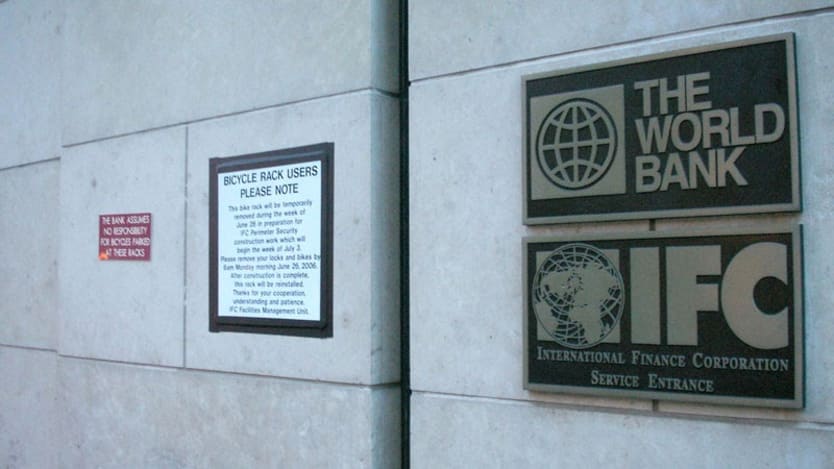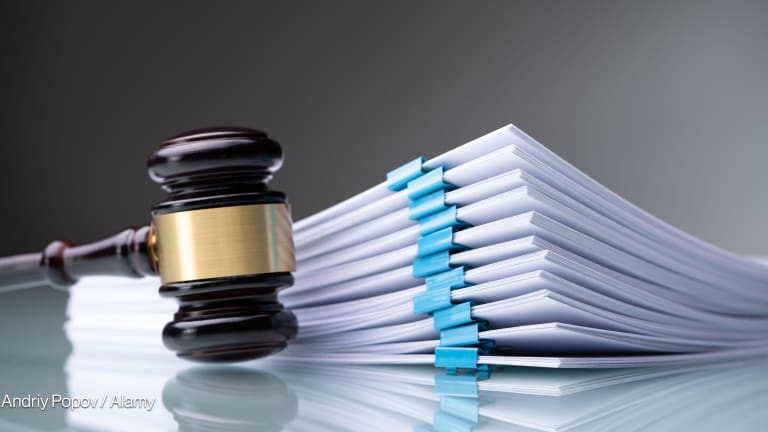
LONDON — The World Bank’s board was preparing Thursday morning to discuss the institution’s role in a disastrous Guatemalan dam project linked to the death of a community activist. Civil society groups are hoping the meeting will lead to tougher accountability.
“The IFC should have known better, and I hope that the board doesn’t let it walk away with a bunch of excuses.”
— Kate Geary, co-director, RecourseThe board of directors is set to review the findings of an investigation by the bank’s ombudsman into a controversial hydro project on the Cambalam River near Santa Cruz Barillas, which was indirectly funded by the bank’s private sector arm, the International Finance Corporation.
More on the World Bank:
► Exclusive: With lending to Africa up, Malpass splits World Bank Africa department in two
► Why the World Bank is partnering with the Consumer Technology Association
► Pendulum swings back to regions with new World Bank reporting structure
This is the first time the board has reviewed such a case and comes as the bank seeks to improve its accountability record in response to a number of high-profile complaints from communities affected by projects it has funded, including one from India that made it to the United States Supreme Court in the case of Jam v. International Finance Corp.
Accountability activists told Devex they hope the board meeting — which is informal and not intended to produce a decision — will force IFC to improve actions to prevent, and respond to, environmental and social damage linked to its investments.
“The outcomes of this board discussion ... are going to set a precedent for how seriously the World Bank is responding to harms in the wake of Jam v. IFC and recent commitments to addressing sustainability,” Christian Donaldson, an Oxfam policy adviser working on international financial institutions, told Devex.
IFC was linked to the Guatemalan hydro project through its $30 million funding to Latin American infrastructure investor Corporación Interamericana Para el Financiamiento de Infraestructura, or CIFI, which in turn supported Hidro Santa Cruz to build the dam. The project also received funding from Norway and Finland.
Work started in 2008 but was shut down eight years later amid fierce opposition from local — mostly indigenous — communities, which escalated into violence. In 2012, community activist Andres Francisco Miguel was killed and other community members were injured or detained. The Guatemalan government eventually declared a state of emergency in Barillas.
In 2015, communities lodged a complaint with IFC’s watchdog, the Office of the Compliance Advisor Ombudsman. CAO carried out an investigation, to which IFC responded with a proposed action plan, though neither of the related documents has been published. The board will discuss both reports Thursday.
Kate Geary, co-director of the watchdog group Recourse, said that while IFC may argue it is not responsible for harms linked to the project since the dam was never completed, she still hopes the board will hold it to account.
“The IFC should have known better, and I hope that the board doesn’t let it walk away with a bunch of excuses,” Geary said, adding that communities are still waiting for compensation and are still suffering as a result of the now-defunct project.
This is the first time the board has asked to review a CAO case, which is normally done by the president of the World Bank Group.
However, in light of last year’s Supreme Court ruling, which opened IFC up to litigation from complainants, the institution is paying closer attention and has agreed to let the board advise on high-risk CAO cases.
The change in procedure comes alongside other accountability reforms. The board is also in the process of reforming the bank’s two accountability mechanisms — the Inspection Panel and the CAO — with a view to strengthening their effectiveness. The reviews are ongoing but look likely to mean an oversight role for the board, especially regarding CAO complaints.
However, some worry that certain board members — especially those from countries that might host high-risk projects — may resist efforts to strengthen accountability.
“If the board is going to be involved in difficult cases, then it really needs to think through its role … [which] should be to ensure IFC is held responsible for its own performance standards, learns lessons to stop breaches happening again, and offers remedy to harmed communities” Geary said.
A spokesperson for IFC did not comment on the board meeting but told Devex in an email that the institution had “cooperated with the investigation and assessment of the Compliance Advisor Ombudsman ... and incorporated lessons from that review into the ways we work with financial intermediaries.”
Search for articles
Most Read
- 1
- 2
- 3
- 4
- 5








